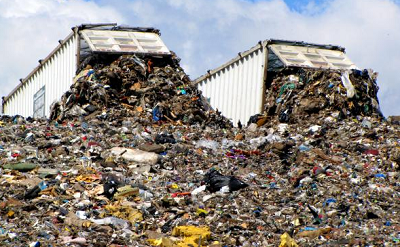Accra is facing a looming health crisis as all landfill sites within the city have reached full capacity, the Accra Metropolitan Assembly (AMA) has warned.
The alarming update was revealed during a recent working visit by the Parliamentary Committee on Sanitation and Water Resources to assemblies in the Greater Accra Region.
Director of Waste Management at the AMA, Engineer Solomon Noi, attributed the worsening situation to the absence of engineered landfill sites and inadequate waste disposal infrastructure.
“We used to dump at a place called Nsumia in Ga West, near Blue Skies. Once that quarry site was filled, we moved to Nsawam. Nsawam Adoagyiri was also using it until it evolved into a joint site for the Greater Accra and Eastern regions, which is now privately managed by West Landforce,” he said.
Mr. Noi disclosed that the only engineered landfill site available is located at Kpone, while a new site is being considered at Ayidan in the Ga South Municipality.
“There are important environmental factors to consider before siting a landfill. Apart from the one at Kpone and the proposed site at Ayidan, there are no engineered sites available for safe waste disposal,” he stressed.
Mr. Noi warned that without swift government intervention, Accra could soon face a severe disease outbreak.
“We’re transporting waste from Accra to distant sites, but these sites are not engineered. When it rains, leachate seeps into rivers and depressions and eventually flows back into the city, posing a significant health risk,” he said.
He also raised concerns about the handling of medical and sanitary waste, highlighting the role of waste pickers — many of whom are migrants from neighbouring countries — in spreading infections.
“All the hospital and healthcare waste ends up at the same dumping sites, mixing with general waste. These waste pickers often collect and return to the city, which contributes to recurring outbreaks of diseases like cholera and typhoid,” he explained.
To curb the looming health threat, Mr. Noi recommended the construction of a modern intermediate waste treatment facility.
“The sustainable solution is for government to invest in an intermediate treatment facility — specifically, a state-of-the-art incineration plant — to handle non-recyclables such as baby diapers, sanitary pads, and healthcare waste,” he said.
“Pathogens would be destroyed in the furnace before the bottom ash is transferred to a landfill site. That’s how we break the cycle of disease infection,” Mr. Noi added.
ALSO READ:
- Driver, mate trapped at Ashaley Botwe landfill site
Ghana Used Clothing Dealers Association reject report on textile waste in Ghana

